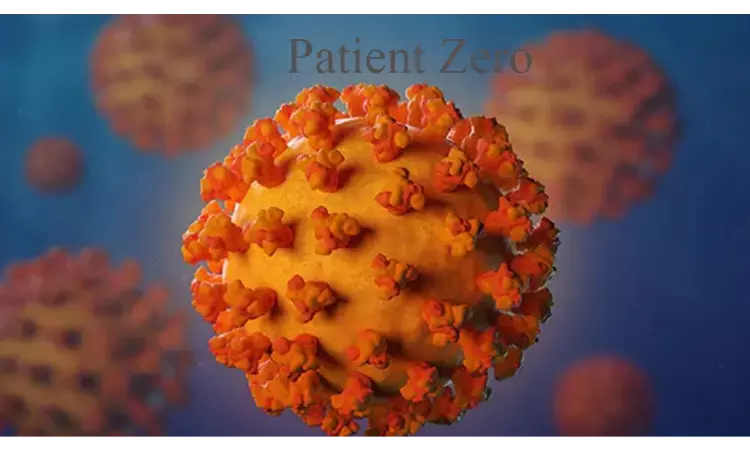- Home
- Medical news & Guidelines
- Anesthesiology
- Cardiology and CTVS
- Critical Care
- Dentistry
- Dermatology
- Diabetes and Endocrinology
- ENT
- Gastroenterology
- Medicine
- Nephrology
- Neurology
- Obstretics-Gynaecology
- Oncology
- Ophthalmology
- Orthopaedics
- Pediatrics-Neonatology
- Psychiatry
- Pulmonology
- Radiology
- Surgery
- Urology
- Laboratory Medicine
- Diet
- Nursing
- Paramedical
- Physiotherapy
- Health news
- Fact Check
- Bone Health Fact Check
- Brain Health Fact Check
- Cancer Related Fact Check
- Child Care Fact Check
- Dental and oral health fact check
- Diabetes and metabolic health fact check
- Diet and Nutrition Fact Check
- Eye and ENT Care Fact Check
- Fitness fact check
- Gut health fact check
- Heart health fact check
- Kidney health fact check
- Medical education fact check
- Men's health fact check
- Respiratory fact check
- Skin and hair care fact check
- Vaccine and Immunization fact check
- Women's health fact check
- AYUSH
- State News
- Andaman and Nicobar Islands
- Andhra Pradesh
- Arunachal Pradesh
- Assam
- Bihar
- Chandigarh
- Chattisgarh
- Dadra and Nagar Haveli
- Daman and Diu
- Delhi
- Goa
- Gujarat
- Haryana
- Himachal Pradesh
- Jammu & Kashmir
- Jharkhand
- Karnataka
- Kerala
- Ladakh
- Lakshadweep
- Madhya Pradesh
- Maharashtra
- Manipur
- Meghalaya
- Mizoram
- Nagaland
- Odisha
- Puducherry
- Punjab
- Rajasthan
- Sikkim
- Tamil Nadu
- Telangana
- Tripura
- Uttar Pradesh
- Uttrakhand
- West Bengal
- Medical Education
- Industry
One in ten people may still be infectious for COVID after ten days, new research indicates

One in 10 people may have clinically relevant levels of potentially infectious SARS-CoV-2 past the 10 day quarantine period, according to new research.
The study, led by the University of Exeter and funded by Animal Free Research UK, used a newly adapted test which can detect whether the virus was potentially still active. It was applied to samples from 176 people in Exeter who had tested positive on standard PCR tests.
The study, published in the International Journal of Infectious Diseases found that 13 per cent of people still exhibited clinically-relevant levels of virus after 10 days, meaning they could potentially still be infectious. Some people retained these levels for up to 68 days. The authors believe this new test should be applied in settings where people are vulnerable, to stop the spread of COVID-19.
Professor Lorna Harries, of the University of Exeter Medical School, oversaw the study. She said: "While this is a relatively small study, our results suggest that potentially active virus may sometimes persist beyond a 10 day period, and could pose a potential risk of onward transmission. Furthermore, there was nothing clinically remarkable about these people, which means we wouldn't be able to predict who they are".
Conventional PCR tests work by testing for the presence of viral fragments. While they can tell if someone has recently had the virus, they cannot detect whether it is still active, and the person is infectious. The test used in the latest study however gives a positive result only when the virus is active and potentially capable of onward transmission.
Lead author Merlin Davies, of the University of Exeter Medical School, said: "In some settings, such as people returning to care homes after illness, People continuing to be infectious after ten days could pose a serious public health risk. We may need to ensure people in those setting have a negative active virus test to ensure people are no longer infectious. We now want to conduct larger trials to investigate this further."
Animal Free Research UK CEO, Carla Owen, said: "The University of Exeter team's discovery is exciting and potentially very important. Once more, it shows how focusing exclusively on human biology during medical research can produce results that are more reliable and more likely to benefit humans and animals.
"Pioneering animal free work is providing the best chance of not only defeating Covid 19 but also finding better treatments for all human diseases.
"The results also send a loud and clear message to the Government to better fund modern medical research and make the UK a world leader in cutting edge, kinder science."
Hina Zahid Joined Medical Dialogue in 2017 with a passion to work as a Reporter. She coordinates with various national and international journals and association and covers all the stories related to Medical guidelines, Medical Journals, rare medical surgeries as well as all the updates in the medical field. Email: editorial@medicaldialogues.in. Contact no. 011-43720751
Dr Kamal Kant Kohli-MBBS, DTCD- a chest specialist with more than 30 years of practice and a flair for writing clinical articles, Dr Kamal Kant Kohli joined Medical Dialogues as a Chief Editor of Medical News. Besides writing articles, as an editor, he proofreads and verifies all the medical content published on Medical Dialogues including those coming from journals, studies,medical conferences,guidelines etc. Email: drkohli@medicaldialogues.in. Contact no. 011-43720751


